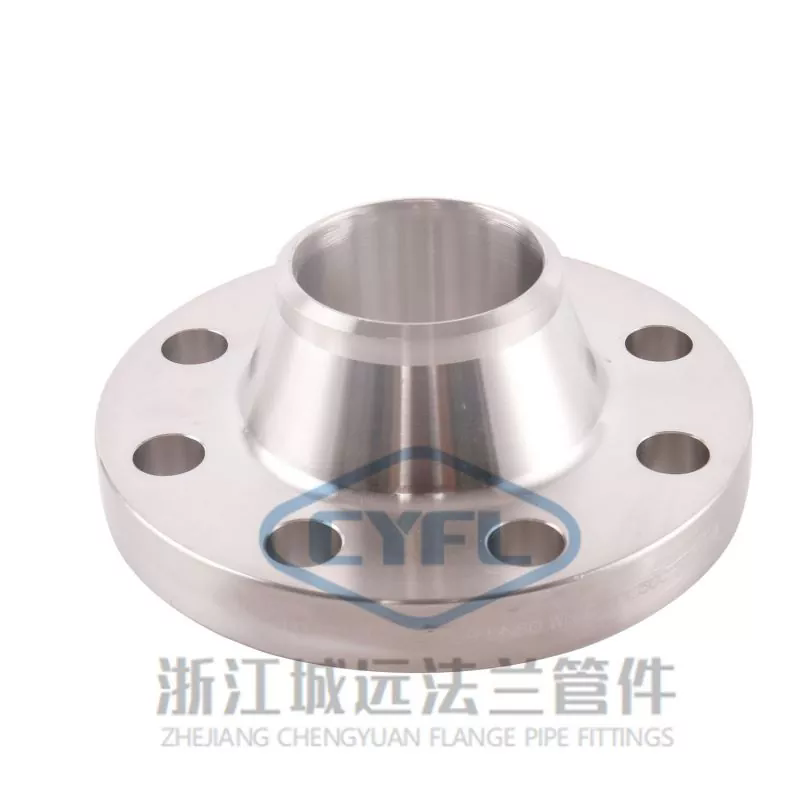Why Are Stainless Steel Flanges Essential for Modern Piping Systems?
2024-12-26
When it comes to building reliable and durable piping systems, stainless steel flanges play a pivotal role. These components are not just connectors; they ensure the integrity, efficiency, and longevity of pipelines in a wide range of industries. But what makes stainless steel flanges a go-to choice for engineers and manufacturers worldwide? Let’s delve into their significance and explore why they are indispensable in today’s industrial landscape.
What Are Stainless Steel Flanges?
Stainless steel flanges are circular components designed to connect pipes, valves, pumps, or other equipment within a piping system. They serve as a joint that facilitates easy assembly, disassembly, and maintenance. Made from corrosion-resistant stainless steel, these flanges are known for their durability and strength in demanding environments.
They come in various types, including:
- Weld Neck Flanges
- Slip-On Flanges
- Blind Flanges
- Socket Weld Flanges
- Threaded Flanges
Each type serves specific applications, ensuring versatility in design and functionality.
Why Are Stainless Steel Flanges Important?
1. Corrosion Resistance
Stainless steel is renowned for its resistance to rust and corrosion, making these flanges ideal for harsh environments, including chemical processing, marine, and oil & gas industries.
2. Strength and Durability
These flanges offer exceptional mechanical strength, ensuring that they can withstand high pressures and extreme temperatures without deforming or failing.
3. Versatility
Stainless steel flanges can be used in various applications, from transporting water to handling aggressive chemicals, making them suitable for multiple industries.
4. Easy Maintenance
Flanges provide a convenient access point for inspection, cleaning, and repairs, reducing downtime in piping systems.
5. Aesthetic Appeal
Beyond functionality, stainless steel flanges offer a clean, polished look that enhances the overall appearance of the system.
Where Are Stainless Steel Flanges Used?
1. Oil and Gas Industry
- High-pressure pipelines
- Offshore drilling platforms
- Refinery systems
2. Chemical Processing
- Acidic and corrosive chemical transport
- High-temperature reactors
3. Food and Beverage
- Hygienic piping for dairy and brewery systems
- Corrosion-resistant systems for food-grade liquids
4. Water Treatment Plants
- Wastewater transport systems
- Desalination plants
5. Marine Applications
- Shipbuilding and repair
- Saltwater piping systems
How to Choose the Right Stainless Steel Flange?
1. Material Grade
- 304 Stainless Steel: Ideal for general use in non-corrosive environments.
- 316 Stainless Steel: Best for highly corrosive environments, offering superior resistance.
2. Pressure Rating
- Ensure the flange meets the pressure requirements of your system (e.g., ANSI, DIN, or JIS standards).
3. Size and Fit
- Accurate measurements of pipe diameter and flange specifications are crucial for a secure connection.
4. Type of Flange
- Select the type based on your system’s design and purpose (e.g., weld neck for high-pressure systems, blind for sealing pipe ends).
5. Finish and Coating
- Polished or coated flanges may be required for aesthetic or additional corrosion resistance.
Benefits of Using Stainless Steel Flanges
- Longevity: Stainless steel flanges last longer than those made from other materials.
- Cost-Effective: Despite a higher upfront cost, their low maintenance and durability result in long-term savings.
- Environmental Friendliness: Stainless steel is 100% recyclable, making these flanges an eco-friendly choice.
- Global Standards Compliance: Most stainless steel flanges meet international standards, ensuring compatibility and reliability.
Why Should You Invest in Stainless Steel Flanges?
Stainless steel flanges combine functionality, durability, and aesthetics, making them an indispensable component for industrial and commercial piping systems. Whether you’re constructing a new pipeline or upgrading an existing one, these flanges offer unmatched performance and peace of mind.
Conclusion
Stainless steel flanges are more than just connectors; they are the backbone of reliable and efficient piping systems. Their corrosion resistance, strength, and versatility make them a top choice for industries worldwide.



